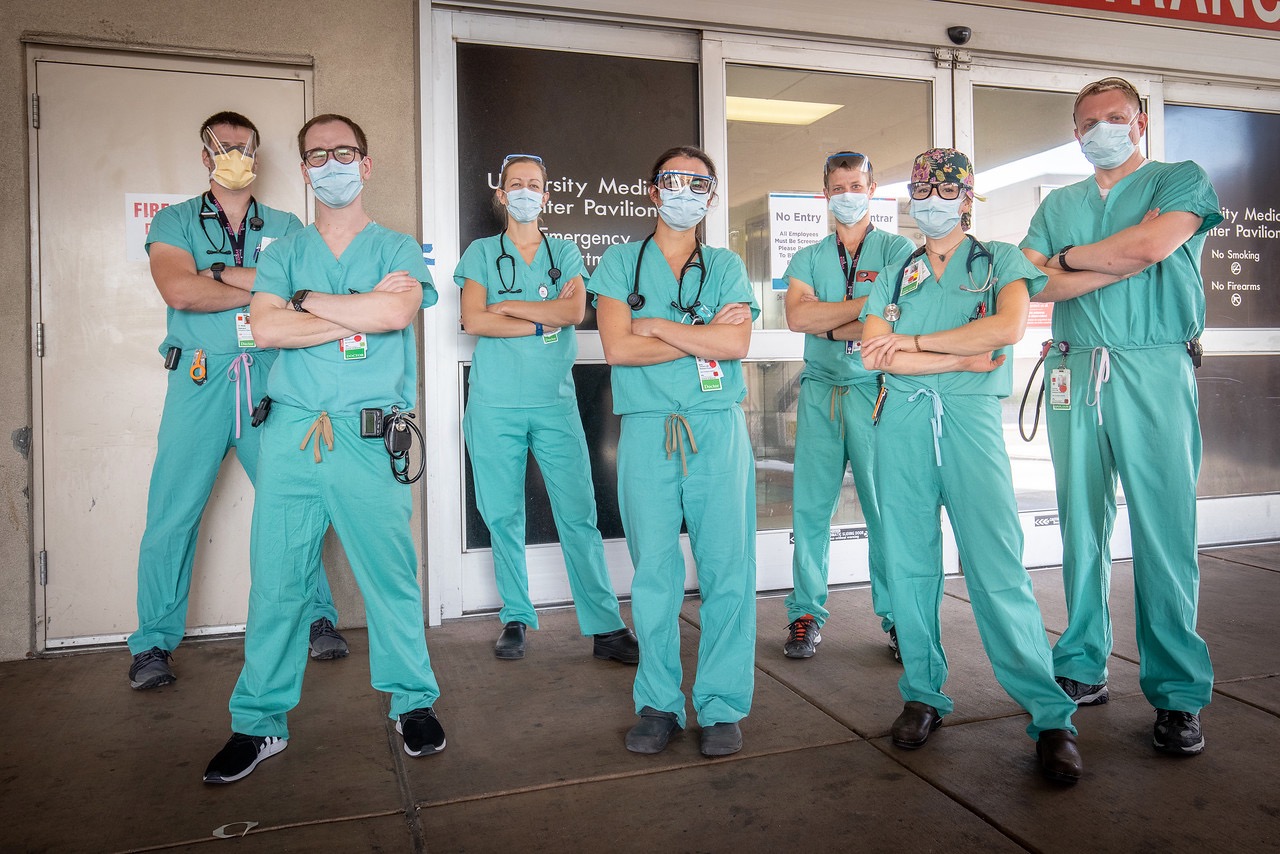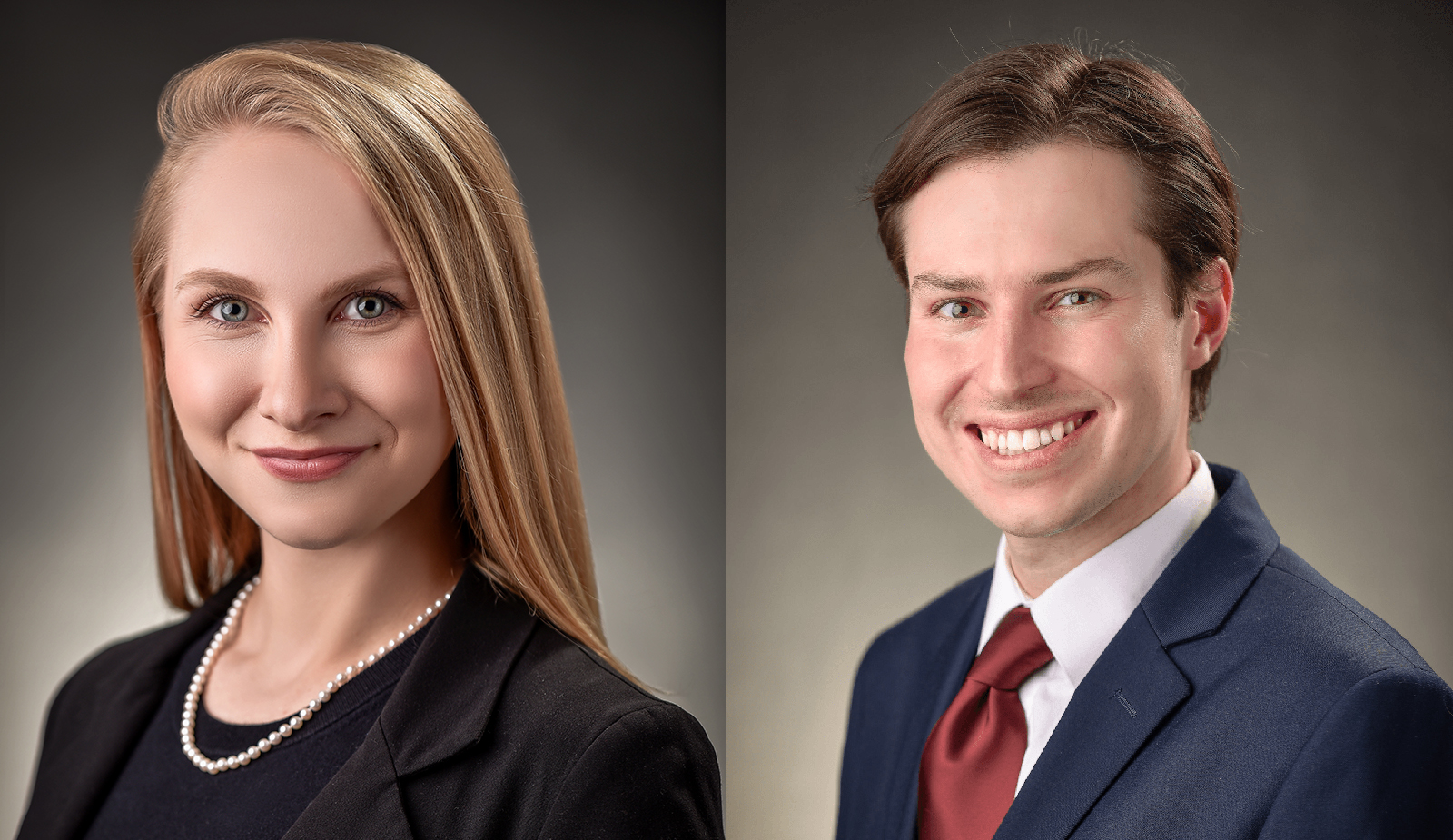Program Provides Research Opportunities for Undergraduate Students

Changing the World
UNM Medical Students Learn to Craft Health Policy and Lead Global Networking
From a societal perspective, what makes your stomach hurt?
Amy Clithero, PhD, a principal lecturer in The University of New Mexico Department of Family & Community Medicine, asks the question to encourage students to think about something they see that they really want to change in their world.
For Amanda Lokke, a fourth-year medical student, it was learning that some women have restricted access to feminine hygiene products.
For Paul Ratmeyer, it was learning about the vast global inequities in access to health care.

Clithero, who is also the director for Health Policy and Health Systems Education for medical students, teaches a health policy course required for third-year students.
“That's where policy begins,” Clithero says. “And it's a very structured format for them to be able to see if they want to make a change within their community, within their school. How do they persuade decision-makers? We don't require them to implement the policy, because that is beyond their control, but we do encourage them to do so.”
Clithero describes the health policy and advocacy training as robust, adding that most medical schools offer the course as an elective, rather than a required course.
Lokke and Ratmeyer are among those students taking steps to make a difference even though they’ve already completed the required class.
(The students) inspire me every day. They just go above and beyond.
“(The students) inspire me every day,” Clithero says. “They just go above and beyond.”
Lokke worked with state legislators last summer to craft a policy that would eliminate sales tax on feminine hygiene products, and create a fund to help those in need of access to products.
“I came across the issue of period equity and how difficult it can be for people to get the menstrual hygiene products that they need,” says Lokke, who’s applying for residencies in urology and gynecology.
She says the proposal would benefit “people in shelters, prisons or anyone who's on Medicaid or anything like that.”
The elimination of taxes on menstrual products is already in place in several states, as well as globally.
Over the summer Lokke presented her findings to the Legislative Health & Human Services interim committee. State Rep. Christina Trujillo is going to be creating a tax relief bill to introduce in the upcoming session, Lokke says.
“I think removing taxation is important because it is a dignity and an equity issue,” Lokke says. “This is something that men don't have to deal with, and there's not a lot of products that men have to buy on a regular basis that are taxed. So, it's more about equity.
“But when we're talking about people who have a hard time making ends meet, and individuals who are in a prison system where they aren't able to get enough of their products on a monthly basis, it's important that we can provide funding for them.”
Ratmeyer is a student leader in a peer-to-peer global networking group with Ugandan medical students. They meet on a regular basis to share stories on how they handle different cases. The student group is part of the Network Towards Unity for Health, an international organization in which Clithero is on the board of directors representing the United States and Canada.
Ratmeyer, also a fourth-year medical student, says that growing up in Gallup gave him a sense of the types of medical disparities common within rural communities.
His activity and leadership within Global Health Peer-To-Peer Education Program as a coordinator for the United States has widened his perspective on how people access health care.
“What patient care looks like in Uganda is completely different from the perspective that I bring on patient care in the United States,” Ratmeyer says. “At the same time in these very different environments, we're both aiming for the same thing – we want to give patients the best care possible. We want to interact with patients and treat them with respect and really be there for them. And it's really cool to see how that end goal happens in such a wide variety of environments.”
The student group holds weekly meetings in which a different student group makes a presentation. Recently, Ugandan medical students presented on malaria.
“I think the thing that we miss in our education, especially with these diseases that we don't see here in the United States, is this personal aspect of this is the experience that I had with a patient of this disease. And that's really powerful but it's also really informative.”
“What I've taken from this is that any communication in any dialogue is an important starting point,” he says.
For students interested in learning more or joining the Global Health Peer-To-Peer Education Program, send an email to pratmeyer@salud.unm.edu.